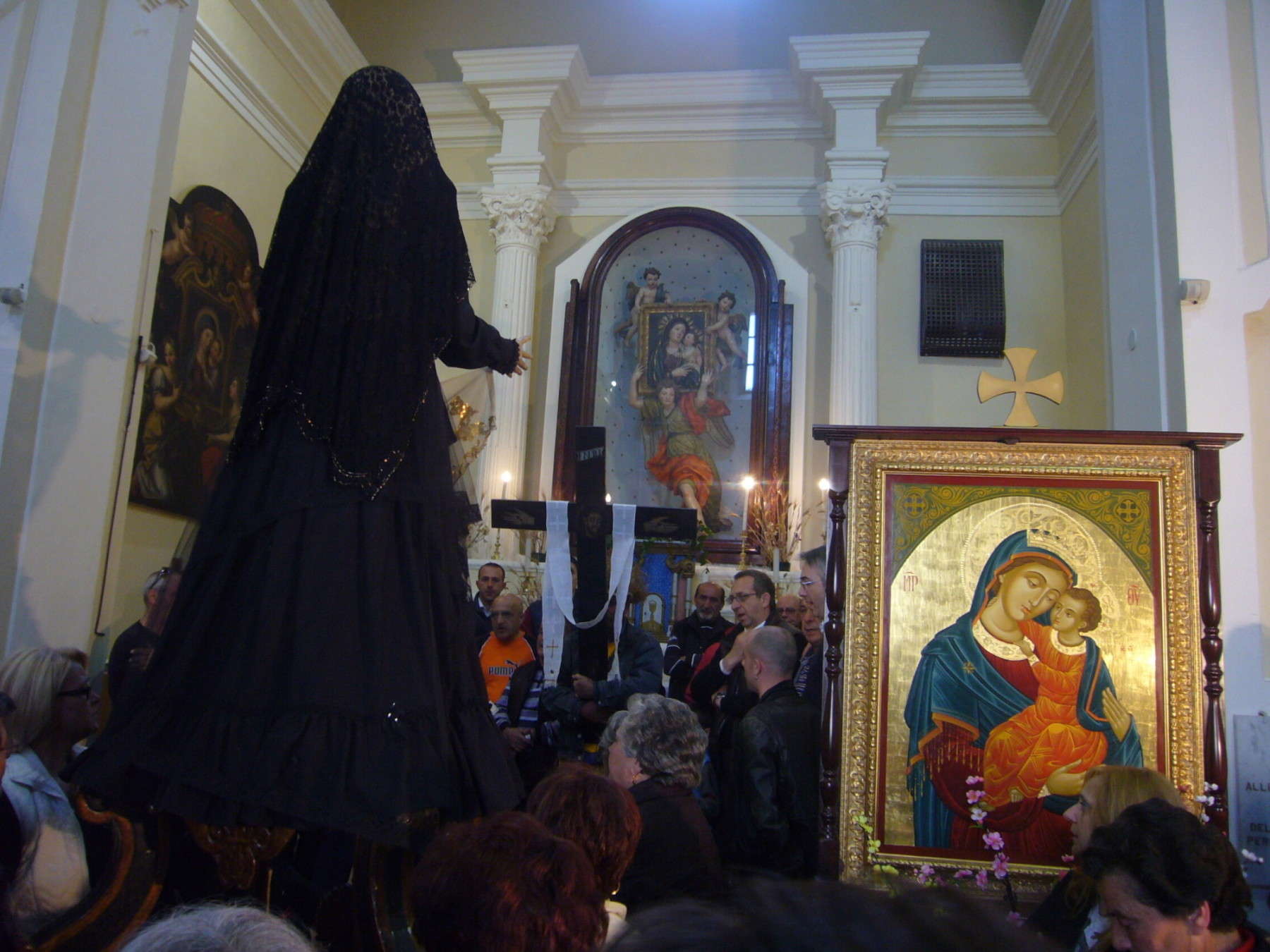The cultural identity of a community, even the most closed one, is a very complex phenomenon. Hereditary traces merge with newly acquired ones; devices of reinvention are at stake with implications that may appear sometimes as paradoxical.
This takes place in the villages of arbëresh, an ancient diaspora that can be found in south Italy, and also among the Albanian diaspora in Ukraine. They are closed communities par excellence. Even after five centuries, they have managed to preserve their language, traditions and cultural identity as rooted in the exodus caused by the Ottoman conquest of the Balkans. Nicola Scaldaferri in collaboration with Luigi Scarpa has worked on two brief documentaries. The audiovisual narratives present here the research results.
The first one is related to the Albanians of Ukraine, concentrated in few villages in the southern part of the country. The albanianess of these communities represents a synthesis of their long migrating experiences and the complex historical changes: departing from south Albania, they settled in Bulgaria for nearly three centuries. Afterwards, they moved in the territories of the Russian Empire, an area that latter on came to be part of the state of Ukraine. It is a complex story, still uncompleted, if we consider that Zaporozhye, the area that includes these villages, has recently been the hot spot of the disputes between the Russian Federation and Ukraine. It seems that the armed conflict did not take into consideration any minority groups that lived there.
The footage dates in 2010 and therefore narrates the situation of that time. We meet many informers on that occasion thanks to the precious collaboration with Alexander Novik from Kunstkamera-S. Petersburg. Currently, any contact with them has been lost.
“Ga Tant”. The Albanians of Ukraine; 8’
The second documentary is focused on the rituals of the Holly Week in the arbëresh village of San Benedetto Ullano, in Calabria. The arbëresh moved to south Italy during the 15th century as a consequence of Ottoman expansion. They settled in many small villages, and S. Benedetto Ullano is one of the main centers on a cultural level. The reason for that is the history of Collegio Corsini, founded in 1723 in this village, for the education of Greek-Albanian clergy; moreover, S. Benedetto Ullano is also the birthplace of the prominent intellectual figures of Rodotà family.
There is a very rich blending of music and rituals – from the sacral oriental ones to the religious songs of the arbëresh poet Giulio Variboba (1725 – 1788). Yet, very representative for asserting the religious and the cultural identity of this community is the Otemento song. This piece performed by men, in a polyphonic stance. The lyrics refer to one of the most important pages in the history of Italian literature: Passione, from Inni Sacri of Alessandro Manzoni.
Five Centuries of Manzoni. The Songs of the Holy Week in the Arbëresh Village of San Benedetto Ullano (Calabria, Italy); 8’


